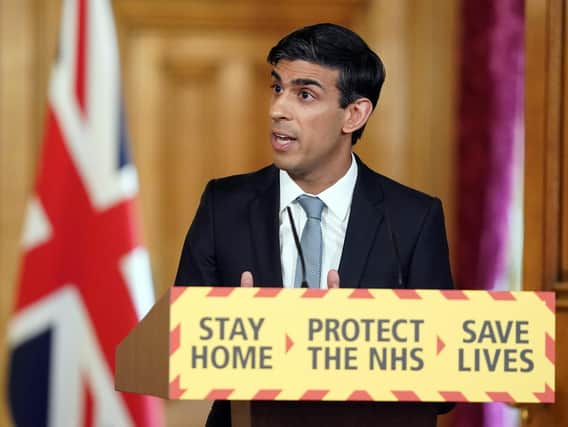UK debt pile reaches £2.1 trillion after record November borrowing


The Office for National Statistics (ONS) said last month’s borrowing – excluding state-owned banks – soared by £26 billion year on year and marked the highest seen in November and the third highest in any month since records began in 1993.
The latest estimate saw public sector net debt reach a new all-time high of £2.1 trillion at the end of last month.
Advertisement
Hide AdAdvertisement
Hide AdIt means the UK’s overall debt is now around 99.5% of gross domestic product (GDP), which is a measure of the size of the economy – a level not seen since 1962.
Borrowing has hit £240.9 billion for the first eight months of the financial year – £188.6 billion more year on year and breaking yet more records.
Recent official forecasts from the Office for Budget Responsibility (OBR) predict borrowing could reach £393.5 billion by the end of the financial year in March, which would be the highest seen since the Second World War.
It comes after the Government launched more than 40 schemes across the UK to help households and businesses through the coronavirus crisis.
Advertisement
Hide AdAdvertisement
Hide AdOne of the most costly has been the furlough scheme for workers, which was last week extended again until April 2021.
The most recent figures from HM Revenue & Customs showed another £3.4 billion worth of claims were made between November 15 and December 13, taking total claims to £46.4 billion and 9.9 million furloughed jobs.
The ONS said borrowing rose as tax and National Insurance receipts fell by £38.3 billion – or 8.6% – year on year in the eight months to November.
But government support for individuals and businesses during the pandemic contributed to a 30% or £147.3 billion hike in central government spending.